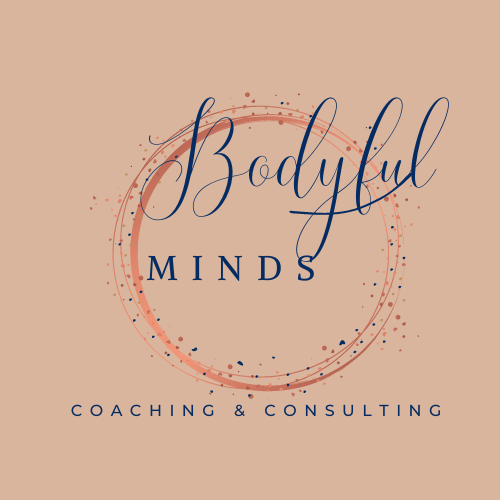A case study
Everyone knows that a career change can be daunting, if not full on scary. That is true with or without kids, but with kids there is just so much more to consider. The good news is, that achieving a career change can be less difficult and challenging, if you have someone on your side to guide you through it. Today, I’d like to share with you the case of one of my team leaders and how she overcame her fears and mental boundaries with my support.
Maybe you have already taken my quiz, or done the deep dive to look at whether or not your career is stalling. If this has confirmed your inkling, that something isn’t quite right with your career, you are probably thinking about what you could change. Obviously, it doesn’t have to be a full career change. Maybe you just want to focus more on one particular aspect of your current role that plays to your true strengths. If that’s the case then please keep reading – Laura, as I will call her for this purpose, went through these struggles with my help and was able to tap into her strengths as a result.

Laura’s journey
But let’s go back to the start. Laura was one of my team leaders in the science sector. She had been with the company for a long time and in a restructure ended up in a team leader role. She was hardworking and dedicated to provide excellent support to her clients. Unlike you, she was single and without many other family commitments – she loved her job and put in all hours. Now you may think that this is not a useful case study for someone with kids who has got very different constraints still. Hear me out though – her worry about changing tracks and about tapping into her true calling were just as real nonetheless and without the right support she would not have dared to make the step either, kids or not.
Mismatched career development
Laura was doing great, she always got fantastic client feedback. She knew the company inside out and was a genuinely warm hearted, supportive colleague. I became her manager after successfully moving up within the company, but we hadn’t worked together before. She initially felt that I as her younger, with a much shorter company history could not teach her anything new. And in fact, I did learn a lot from her about the section of the company and how it worked as well as what did not work so well. Luckily, I was able to surprise her though in the best ways possible as you will see.
Once we’d all found our grove in the new team (there were two other team leaders next to Laura), slowly problems started creeping up. Laura was so dedicated to her clients, that she wasn’t able to also manage her team and fulfil her tasks as a team leader. This meant that the other two colleagues stepped in and picked-up the slack, supported her team as well as theirs. I in turn picked up what was left undone by the three of them as a result. Opening up the discussion on how to solve this within this small team, only worked so far. Laura wanted to do better in her team leader role, but her passion was for the work with her clients and supporting them rather than a team and assuming managing duties coming along with that.
When excellence does not align
The clients were over the moon with Laura’s dedication and many started asking for her, even outside her specific remit. What a gift Laura had from the clients’ perspective! From a company perspective it was great that external clients were so happy, but at the same time Laura didn’t fulfil her role to the extend the company needed her to. It culminated in her team and other teams coming to me saying that her working out of hours and permanent availability had lead our clients to believe that this level of service was standard and out of hours working normal. The teams started receiving complaints directly regarding their perceived bad performance and soon enough these made their way to me.
Solutions that empower
Laura and I had already started looking at her workload and how to prioritize so that she would be able to deal with her portfolio as a team leader, while delegating the more direct client contact to her team. We had regular meetings and while she understood the knock-on effects her ways of working had, it became soon apparent that she couldn’t transfer her passion for support and care from the clients directly onto her team. She had worked like this for more than twenty years, so of course it was not going to be an easy switch.
I started suggesting, that she may want to consider enrolling onto an internal programme qualifying her to move into a role at the same level. A role that meant providing counselling support to clients – something that to me seemed to be perfectly in line with all her hard work and what she used to like about her role.
Listening to yourself for meaningful change
Initially, Laura wasn’t partial to the idea. Talking it over on various occasions she revealed that she felt too old to change her career and risk being unhappy in the new track. She felt, she would let everyone down who had relied on her all this time. The client reviews proved to her mind that if she left to a new role nothing would work anymore. At the same time she wasn’t convinced that she really had a gift in connecting to clients outside of her current remit. And then, of course, enrolling into a programme would also mean putting exactly that to the test and potentially failing at something that meant so much to her.
That really is scary! I understood that then and still relate to this so much now. It is incredibly vulnerable to put yourself out there like this. It is incredibly courageous and as you will find out, if you keep reading, at least equally, if not more rewarding.

Stepping into your light through a career change
Only once she was able to allow her own fears and concerns in. Once she was able to fully identify them, we were able to work through them one at a time. Laura didn’t enroll in the professional development programme right away, but she did when she was ready and had worked through some of her fears. She was lucky in that she knew the role she would cover after taking the programme was being created anyways. With her record of service and experience as well as references she knew that she could easily secure it.
That is not always a given and may make it even harder to step into your own light. Her fears were still very real obstacles for her to overcome after so many years on the same career track. A career track that didn’t truly align with her anymore once she advanced to a more senior role.
It is not always easy to see your own strengths for fear of failing, for fear of not being good enough after all. Especially, if you chose your career track a long time ago – before even having kids. It can feel like failure to change tracks, I get that. Laura had the same struggle, even though she didn’t have kids: Moving into a new career, even if it is adjacent to your old, or asking for a promotion, feels incredibly vulnerable, because what if you fail?
Taking the leap is easier and faster with support
I am still today proud of Laura for taking this brave step and trusting me in the process to support her despite the initial struggles. She once told me that without this encouragement, she would not have made the career change and probably ended up miserable in a role that no longer suited her. Not everyone will need the support – some people just take a while and once they see the picture more clearly, they are decisive and take action on their own. Often this process takes much longer though than when you get support, but everyone has their own schedule and that is absolutely fine.
We all know that family life is always busy and if it is one thing that I am constantly short of, it’s time for sure. So you either choose to wait and see once the kids are older (read up on why I personally don’t think, that this is a good idea), or you decide to get the support and fast-track change that empowers you to make the right choice for you and your family.
Be ready to course correct
The other thing to remember about coaching is that the outcome is not always what you anticipated it to be at the start. So you may come and present all the facts in a way that are in line with what is already at the back of your head. However, you need to be prepared for this outcome to change over the course.
I’ll be honest and say that when I first started working with Laura regarding her role, we both thought it was a matter of adjustment and helping her, find her new priorities. It ended up being a small scale re-training with a new job on the other end as you have seen.
This is also why it is important for a coach to listen carefully and attentively, to really tune into what is moving you and who you are. That is also why as a coach, my approach is never one size fits all. While I truly believe that almost anybody can benefit from increased body awareness, which is a key tool for my work, the degree to which I will make use of it will vary from client to client.
What to look for when you get support
If you decide to get support and tackle a career change, or ask for that promotion, always try to find someone who aligns with you and your values. Try to get to know them before you commit for more: Look at the methods they use predominantly and how flexible they are in applying those. What is their area of expertise? Who have they worked with in the past? And, if you can, schedule a free short appointment online or in person to get a feeling for them and see if you ‘click’.
Lastly, there are increasingly options to join coaching programmes online that are much more cost effective than one-on-one coaching, or can supplement one-on-one coaching to speed up progress and cut cost. Here again, you should choose based on your personality and values and what aligns with you personally.
If you feel like you want to work with me, or if you have questions, please don’t hesitate to get in touch. I’d love to hear from you, of course.

